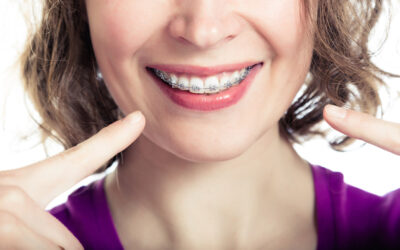Alternatives to Dental Crowns
In this article, we will explore alternative options to dental crowns that provide natural-looking and durable solutions for tooth restoration.
Dental Veneers
Dental veneers are an excellent alternative to dental crowns when it comes to restoring damaged or discolored teeth. These thin shells, typically made of porcelain or composite resin, are custom-designed to fit over the front surface of your teeth, providing a natural-looking and long-lasting solution. Veneers not only enhance the appearance of your smile but also offer a durable and stain-resistant option.
One of the significant advantages of dental veneers is their minimal impact on your natural tooth structure. Unlike dental crowns, which require extensive tooth preparation, veneers preserve the majority of your tooth’s original structure, making them a less invasive alternative.
Furthermore, dental veneers can correct a variety of dental imperfections, including chipped, cracked, or misaligned teeth. They can also be used to close gaps between teeth and improve the appearance of stained or discolored teeth that cannot be easily whitened through traditional methods.
Teeth Whitening
Teeth whitening is another alternative to dental crowns that focuses on improving the color and overall appearance of your teeth. If your primary concern is stained or discolored teeth, professional teeth whitening treatments can help you achieve a brighter smile without the need for extensive dental work.
Professional teeth whitening treatments are performed by dental professionals and utilize high-quality bleaching agents to remove surface stains and lighten the shade of your teeth. These treatments are safe, effective, and can provide significant improvements in a short amount of time.
It’s important to note that teeth whitening is most effective for extrinsic stains caused by external factors such as food, drinks, and smoking. However, intrinsic stains, which occur within the tooth structure, may require alternative treatments such as veneers or dental bonding for optimal results.
Dental Bonding
Dental bonding is a versatile and cost-effective alternative to dental crowns that can address various cosmetic and restorative dental concerns. This procedure involves the application of a tooth-colored resin material to the tooth’s surface, which is then shaped and polished to blend seamlessly with your natural teeth.
Dental bonding is commonly used to repair chipped, cracked, or decayed teeth. It can also be utilized to close small gaps between teeth, improve the appearance of discolored teeth, or alter the shape and size of teeth. The procedure is relatively quick, typically completed in a single dental visit, and provides immediate results.
Additionally, dental bonding requires minimal tooth preparation, making it a conservative alternative to dental crowns. While not as durable as crowns or veneers, dental bonding can last several years with proper care and maintenance.
Inlays and Onlays
Inlays and onlays, also known as indirect fillings, offer a conservative alternative to dental crowns for restoring moderately damaged or decayed teeth. These restorations are custom-made in a dental laboratory and are designed to fit precisely within or on the biting surface of the affected tooth.
Inlays and onlays are typically made from porcelain, composite resin, or gold, providing durability and strength comparable to dental crowns. However, unlike crowns, inlays, and onlays preserve more of your natural tooth structure, requiring less removal of healthy tooth material.
These restorations are especially beneficial when the damage to the tooth is too extensive for a simple filling but not severe enough to warrant a full dental crown. They provide an excellent solution for teeth with large cavities, cracks, or fractures, restoring their functionality and appearance while maintaining a natural look.
Dental Implants
Dental implants are an innovative alternative to dental crowns when it comes to replacing missing teeth. Unlike other restoration options, such as dental bridges or dentures, dental implants provide a permanent and long-lasting solution that mimics the natural look and feel of your original teeth.
A dental implant consists of three main components: a titanium post, an abutment, and a dental crown. The titanium post is surgically placed into the jawbone, where it fuses with the surrounding bone tissue through a process called osseointegration. This creates a stable foundation for the replacement tooth.
Once the implant has fully integrated with the jawbone, an abutment is attached to the post, and a custom-made dental crown is placed on top. The dental crown, typically made of porcelain or ceramic, is designed to match the color, shape, and size of your natural teeth, ensuring a seamless and natural-looking restoration.
Dental implants not only restore the appearance of your smile but also provide functional benefits. They allow you to speak, chew, and bite with confidence, as they closely resemble the strength and stability of natural teeth. With proper care and maintenance, dental implants can last a lifetime, making them a worthwhile investment in your oral health.
Frequently Asked Questions (FAQs)
Are dental veneers suitable for everyone?
Dental veneers are a suitable option for many individuals; however, a comprehensive dental examination is necessary to determine their suitability for your specific case. Your dentist will evaluate factors such as tooth health, alignment, and bite before recommending veneers.
Does teeth whitening cause tooth sensitivity?
Temporary tooth sensitivity is a common side effect of teeth whitening treatments. However, advancements in professional whitening systems have significantly minimized this issue. Your dentist can recommend desensitizing agents or alternative treatments if you are prone to sensitivity.
How long does dental bonding last?
Dental bonding can last several years with proper care and maintenance. However, the lifespan of bonding materials may vary depending on factors such as oral habits, oral hygiene, and the location of the bonded tooth.
Are inlays and onlays as durable as dental crowns?
Inlays and onlays provide comparable durability to dental crowns when it comes to restoring moderately damaged or decayed teeth. However, the longevity of these restorations also depends on factors such as oral hygiene and bite forces.
Who is a good candidate for dental implants?
Dental implants are suitable for individuals with good oral health and sufficient jawbone density. However, certain medical conditions and lifestyle factors may affect the success of the implantation process. Consultation with a dental professional is essential to determine your eligibility.
Do dental implants require special care?
Dental implants require regular oral hygiene practices, including brushing, flossing, and professional dental cleanings. It is also important to avoid habits such as smoking, which can negatively impact the success of the implant.
Conclusion
If you’re looking for an alternative to dental crowns that offers a natural-looking, long-lasting solution for tooth restoration, various options are available. Dental veneers, teeth whitening, dental bonding, inlays and onlays, and dental implants are all excellent alternatives, each catering to specific dental needs and concerns.
By exploring these alternatives with your dentist, you can make an informed decision about the best treatment option for your specific case. Whether you seek to improve the appearance of your smile, restore damaged teeth, or replace missing teeth, these alternatives provide effective and aesthetically pleasing solutions.
Remember, maintaining good oral hygiene practices and regular dental check-ups are essential to ensure the longevity and success of any dental restoration. Embrace the possibilities offered by modern dental technology and achieve a smile that is both healthy and beautiful.



